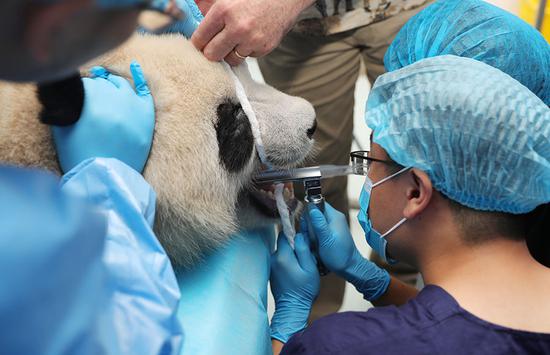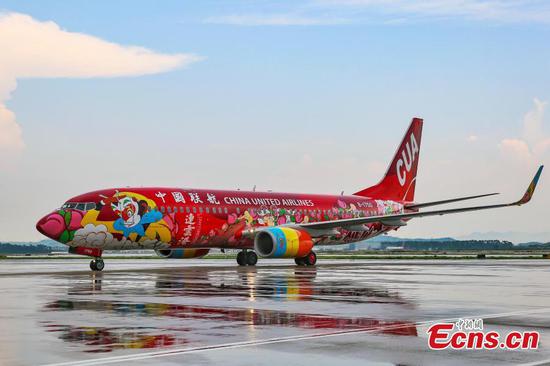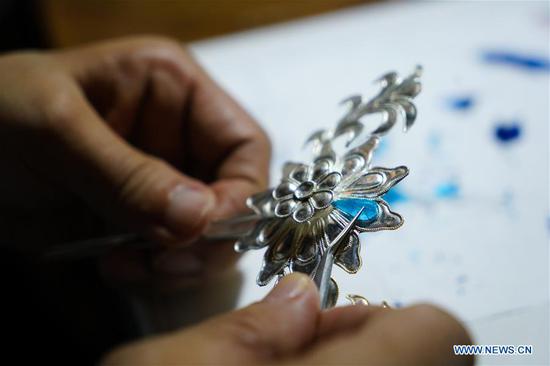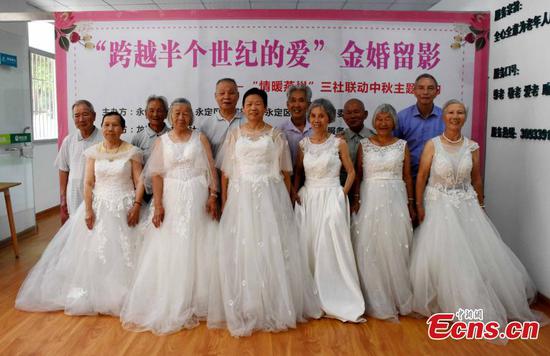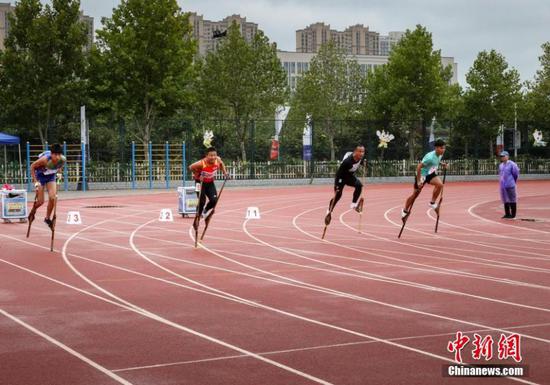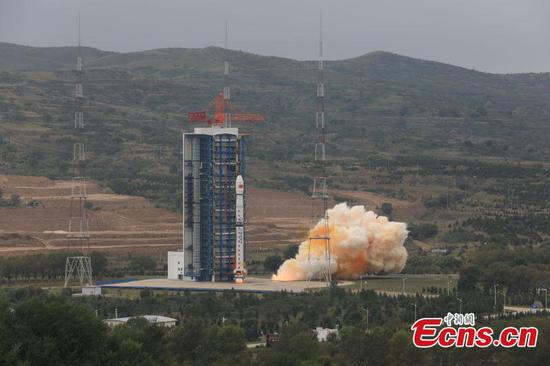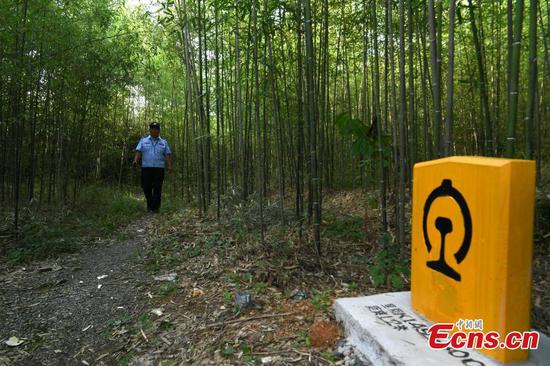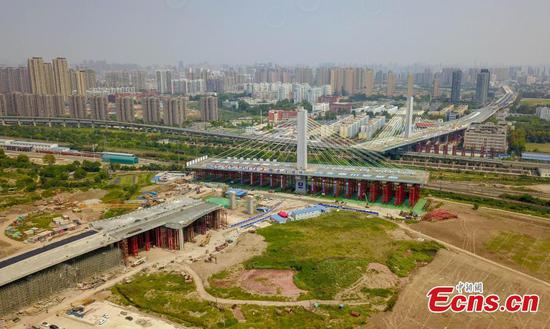
An autonomous driving vehicle of car-hailing giant Didi Chuxing is displayed at the 2019 World Autonomous Vehicle Ecosystem Conference in Shanghai. (Photo by ZHANG HENGWEI/CHINA NEWS SERVICE)
The authorities in Shanghai issued the country's first permits on Monday to conduct operational tests of smart and connected vehicles, marking the latest step in China's efforts to speed up commercialization of autonomous driving.
The permits were issued to Shanghai-based SAIC Motor Group, German premium carmaker BMW AG and China's car-hailing giant Didi Chuxing at the 2019 World Autonomous Vehicle Ecosystem Conference.
The permit holders are each allowed to have a fleet of up to 50 vehicles to conduct operational tests in the city, exploring how to commercialize the latest technology.
Compared with the road test permits Shanghai started to hand out in 2018, the new permits increase the scenarios of autonomous driving tests and thus accelerate the transition from research, development and tests to application and demonstration, said BMW.
The permit holders can apply to increase the number of vehicles after six months if the testing fleet does not have any traffic violations or other unlawful problems, according to the city's regulations on smart and connected vehicles released last week.
Shanghai opened up its first road section for testing smart and connected vehicles in March 2018, and so far the roads have a combined length of 53.6 kilometers, covering 1,580 different scenarios. A total of 11 companies have received the permits from the city's authorities.
"China has the most complicated traffic scenarios in the world, so the BMW Group's automated driving R&D in China has become an important part of autonomous driving development worldwide," the German carmaker said in a statement.
BMW has set up autonomous driving R&D teams in Shanghai and Beijing, composed of nearly 100 engineers. They focus on the development and validation of automated driving function based on typical traffic scenarios in China.
Zu Sijie, chief engineer of SAIC Motor, said smartness and connectivity will be the key differentiator of vehicles from different companies and SAIC has established its own platform for such vehicles.
As China's largest carmaker, SAIC showcased its third-generation vehicle at the conference, which is capable of Level 4 autonomous driving, or mind-off-the-road, functions.
The company also announced on Monday that it is partnering with Huawei and China Mobile on the world's first 5G-based smart transportation program, which will open in Shanghai next year.
Didi is also speeding up its efforts in autonomous driving. The car-hailing giant told Reuters in late August that it plans to start using self-driving vehicles to pick up passengers in Shanghai's Jiading district within months.
The service will allow passengers who hail a vehicle in the district via Didi's app to choose whether to be picked up by a self-driving car, according to Zhang Bo, the firm's chief executive officer.
The cars will still be staffed with a human driver, he said, adding that more than 30 different types of car models will be offered in the pilot service, all equipped with Level-4 autonomous driving capabilities.
Didi hopes to run robotaxis in three Chinese cities, Beijing, Shanghai and Shenzhen, by 2020 and intends to launch the service outside the country in the following year, Zhang said.
Earlier this month, Didi said it had spun off its autonomous driving unit into an independent company that will focus on research and seek to deepen collaboration with automakers.
Consulting firm McKinsey said China has the potential to become the world's largest market for autonomous vehicles, which will steer the country's automotive industry into the passing lane.
It estimated that the mass adoption of highly autonomous vehicles in China will start around 2027 and they could account for 66 percent of the passenger-kilometers traveled in 2040, generating market revenue of $1.1 trillion from mobility services.
Of new vehicles sold in the year, autonomous vehicles will make up more than 40 percent, said McKinsey.











